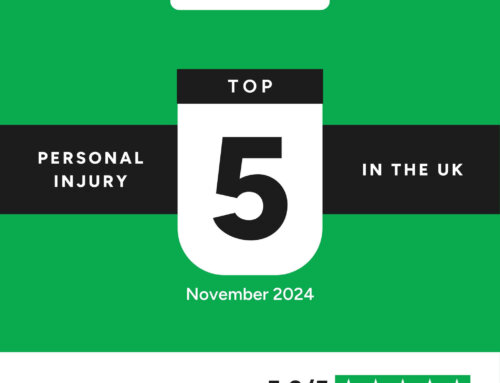What is Stress?
“Stress can be defined as a state of worry or mental tension caused by a difficult situation. Stress is a natural human response that prompts us to address challenges and threats in our lives. Everyone experiences stress to some degree. The way we respond to stress, however, makes a big difference to our overall well-being” The World Health Organisation
April is Stress Awareness Month, an annual event held since 1992 to help raise public awareness about the various causes of stress and suggestions for managing it.
This year’s campaign for Stress Awareness Month is called #LittleByLittle and highlights how small daily actions can combat stress and improve mental well-being.
Modern day life can be stressful enough even without any significant incidents happening in our lives.
However, certain life events can ‘stress us out’ at a much higher level than usual. Research carried out by Benenden Health revealed the top ten most stressful events in the UK as:
- The death of a family member
- Financial issues
- Workplace problems
- Change in a relationship
- Divorce
- Exams/studying
- Buying a house
- Reading or watching the news
- Having a child
- Starting a new job.
Whilst it doesn’t appear in the list above, being involved in an accident can prove highly stressful.
There are two parts to an accident that ultimately results in a personal injury claim, and each can be a source of stress.
- The accident itself.
- The personal injury suffered in the accident.
Stress Caused by Being Involved in an Accident
One of the most common types of road traffic accidents is the rear-end shunt. Anyone reading this article who’s ever had an accident of this type knows how frightening an experience it can be; the sound of vehicles colliding, the screeching of tyres, the smell of engine oil, petrol or from an airbag going off, and the sheer suddenness of the collision.
We all respond differently after suffering a frightening experience. Some people experience no symptoms of stress, others do so for a short time after the incident, whilst others may experience the effects for a year or more post-accident.
It’s pretty normal to suffer some stress as a result of being involved in an accident. In most cases, the stress lessens and disappears within days or weeks. If the stress lasts any longer than a month or six weeks, it’s probably a good idea to seek advice from a medical professional.
To pursue a stress personal injury claim resulting from your involvement in an accident, you would have to receive a diagnosis of a recognised psychological condition from a psychiatrist or psychologist. The medical expert would need to prepare a medico-legal report (a medical report prepared for use in pursuing or defending a personal injury claim).
Bringing a PTSD Claim after a Traumatic Event
PTSD (Post Traumatic Stress Disorder) is a recognised psychological injury that can be caused by involvement in an accident or even from witnessing an accident. According to the NHS website, 1 in 3 people who experience severe trauma develop PTSD.
If you have been involved in or witnessed an accident and it has left you with symptoms of shock that have not significantly improved after a month or so, it is advisable to see your GP, who will refer you to a specialist if they believe you are experiencing symptoms similar to those present in people with PTSD.
If you have been diagnosed with PTSD because of your involvement in or from witnessing a road traffic accident, an accident at work, or any other type of accident that has badly affected you, check out our PTSD claim page or call us on 029 2048 3615 and speak with a legal expert who, without any charge, will advise you of your options. If you prefer, fill in your details on the box to the right of this page and we’ll get back to you.
PTSD is not the only recognisable stress-related condition that may affect those involved in accidents; anxiety, insomnia, and depression are not uncommon.
Can you claim for the onset of any of these conditions following an accident?
The answer is that an appropriate healthcare professional must diagnose you with a recognised psychological or psychiatric illness. If they do, you will need to prove the accident was the cause of your condition and that the person responsible for the accident owed you a ‘duty of care’.
Stress Caused by Sustaining an Injury in an Accident
When you suffer injury in an accident that was the fault of another person, your employer or another organisation, you are entitled to claim for the injuries caused in the accident. To succeed, you will not only have to prove the accident was the fault of the other party involved, but you’ll also have to prove every aspect of your claim.
As we’ve already established, the nature of the injuries sustained must be set out in a medical report prepared by a recognised health professional who is an expert in the field.
So, it may be that the victim of an accident at work suffers both broken bones and a stress-related condition, such as PTSD, all verified by appropriate medical experts. In such circumstances, claiming compensation for both types of injury is eminently possible.
It’s more common for accident victims to claim only for physical injuries. Most people who suffer moderate to severe injuries in accidents will also experience an element of stress. Still, unless they are suffering from a recognised psychiatric illness as a result of the accident, they can’t claim for stress alone.
Remember that an appropriate medical expert must confirm any physical or psychological injury as a recognised injury, illness or condition for there to be a valid psychiatric injury claim, with verification coming in the form of a medical report.
Should I Claim for Stress After an Accident, or is it not Worth it?
You will have noticed that we have been at pains to point out in this article that to bring a stress claim after an accident that was not your fault, the ‘stress ‘ you are suffering must be diagnosed as a recognised mental health condition, such as:
- PTSD (Post Traumatic Stress Disorder)
- Chronic Fatigue Syndrome
- Depression
- Anxiety Disorder
We’ve stressed this at length because although people do suffer from stress as a result of their involvement in an accident, in most cases, it is an understandable reaction that lifts after a matter of days and for which it’s not possible to make a separate claim.
However, when what appear to be minor stress symptoms last longer than, say, a month, alarm bells should start to ring as the apparent symptoms of shock may instead be indicative of a recognised mental health condition.
So, in answer to the question of whether you should claim for stress after an accident, we would advise you to:
- Keep a daily diary of how you feel and whether you can sense any improvement or decline in your mental well-being.
- If you suffered physical injuries in the accident, you should arrange to see your GP as soon after the accident as possible. When you visit your GP, tell them about the symptoms of stress you are experiencing. Your GP may refer you to a consultant at this stage, but if not, there will be a record of the symptoms on your medical notes.
- If your symptoms do not settle down or worsen after three or four weeks, make an appointment with your GP again and take your diary notes.
- If you get referred to a consultant by your GP, continue recording your symptoms daily so that you’ll have a complete record of your symptoms when you get to see the consultant.
- If you are diagnosed with PTSD or another recognised psychiatric condition that developed because of an accident you were involved in, contact a specialist firm of personal injury solicitors like Mooneerams to discuss your options. At Mooneerams, we fund almost all personal injury claims on a No Win No Fee basis. Call us now on 029 2048 3615 for expert obligation-free legal advice about making a personal injury claim for a stress-related illness.









